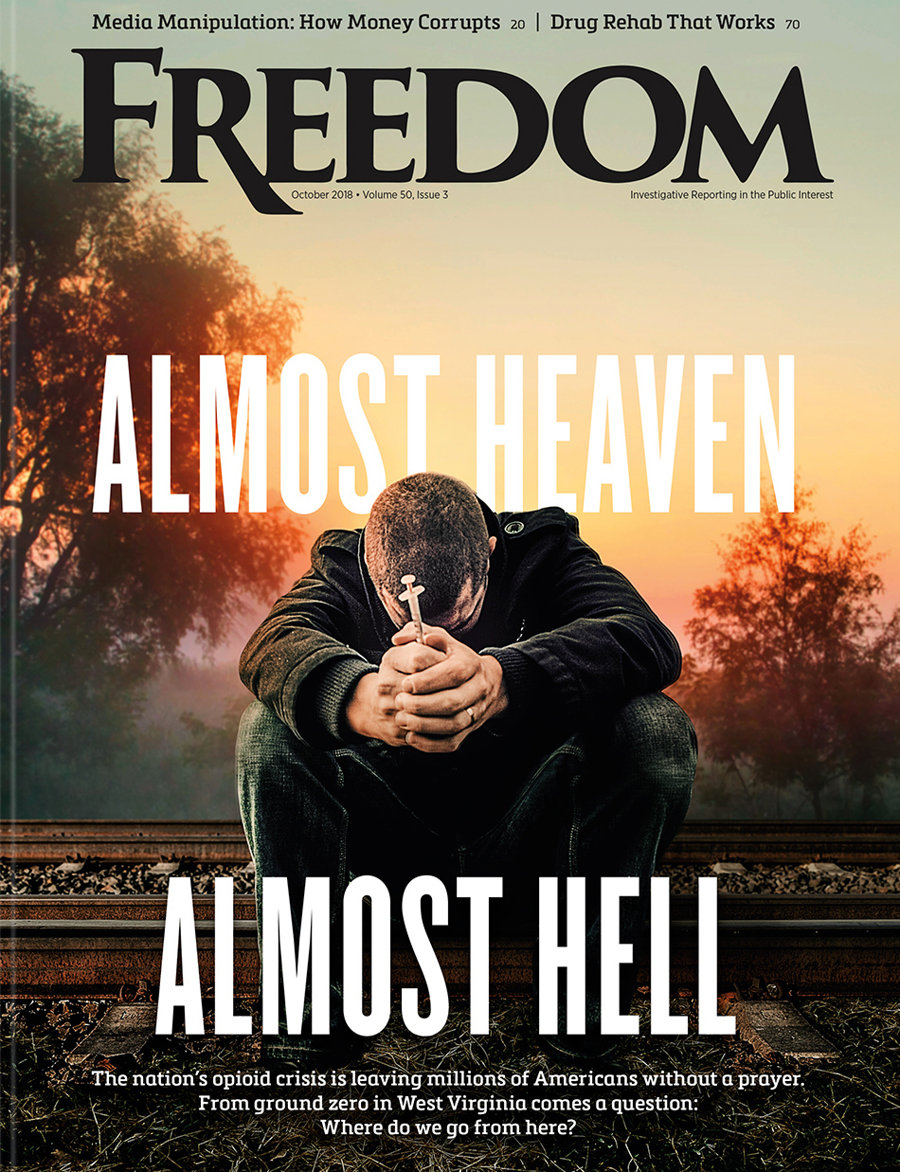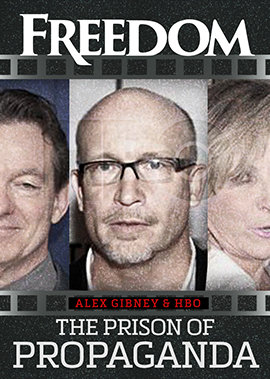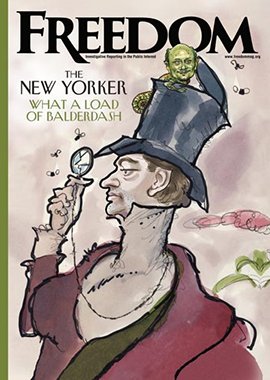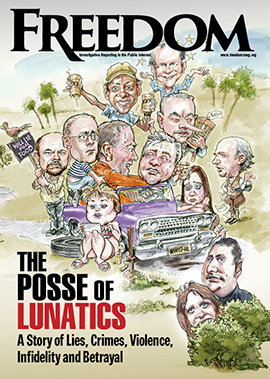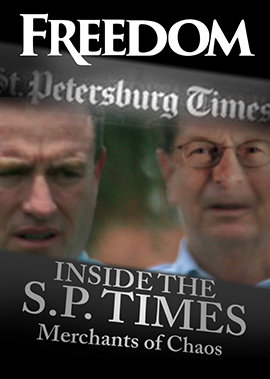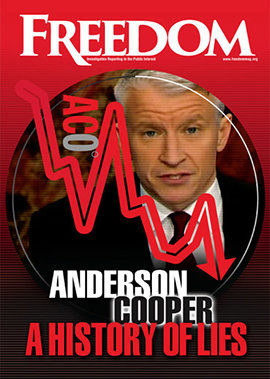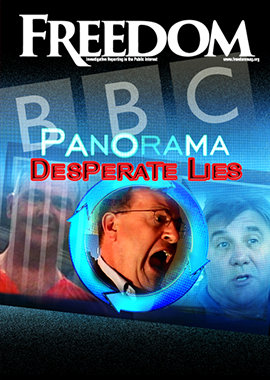As the FBI, Department of Homeland Security and the Department of Labor launched an armed raid on the temple’s construction site in 2021, the press went berserk, offensively calling Bochasanwasi Akshar Purushottam Swaminarayan Sanstha (BAPS), a popular branch of Hinduism, a “sect.”
New Jersey’s The Trentonian paper even referred to their holy temple as the “temple of doom,” a phrase borrowed from a 1984 Indiana Jones movie.
No question that there are red faces in the Fourth Estate.
US Representative Jeff Van Drew described the raid as “an aggressive show of force,” with agents holding “guns to the faces of swamis—holy men devoted to peace, nonviolence and prayer; yet they were treated like dangerous criminals.” (Not that that sort of thing hasn’t happened before. Remember the Branch Davidians in Waco in 1993, when a confrontation with the federal government ended in a fiery inferno and the deaths of 76?)

The media immediately jumped to the conclusion that the charges against BAPS were true and the Hindus were evil criminals.
Bypassing the “innocent until proven guilty” axiom, they gleefully parroted allegations from the class action suit—that workers’ passports had been confiscated and they were defrauded and held as virtual prisoners, forced to work up to 80 hours a week—as if these claims were etched in stone, much like the intricate statues the volunteer workers carved into the stone walls of the temple.
Then, the press anxiously held their breath in anticipation of the indictments and arrests sure to come.
But things started to fall apart… quickly.
Twelve of the plaintiffs suddenly bailed out of the lawsuit, admitting “they have never experienced any pressure, any casteism or discrimination at BAPS temples” and blaming the lawyers who, they said, had misled them into signing on.
The workers, known as sevaks, were religious volunteers brought to the US under R-1 visas that allow nonimmigrants to enter the country to perform volunteer religious labor.
They explained that lawyers had “convinced them to make false allegations in court, tempting them with promises of American citizenship for them and their families, and huge amounts of money.”
Meanwhile, article after article had portrayed BAPS as shifty labor traffickers fraudulently duping Indians of a lower caste to come to America to work like slaves.
The notorious Kevin Dugan, for his part, gleefully joined in, endeavoring to smear the Church of Scientology using the BAPS “model” as a reference and perpetuating what ultimately proved to be false claims.
Oops!
Then the government made a surprise move. After four years of investigations, the Department of Justice decided to drop the case, with no charges made.
No question that there are red faces in the Fourth Estate and, indeed, there should be—but we’re still listening for apologies, which don’t seem to be forthcoming.
The lesson? Religious minorities are considered fair game for vicious, sensational libel by the press.
“This marks a significant victory for the Hindu community in America, which has endured a campaign of calumny designed to malign our faith, our temples and our institutions based on [these] unproven allegation[s],” the Coalition of Hindus of North America (CoHNA) said in a press release.
“The BAPS community was forced to endure false, horrific allegations of forced labor and casteism,” said Suhag Shukla, executive director of the Hindu American Foundation. “Will we ever see an apology for this monstrous, catastrophic episode? We won’t hold our breath.”
The lesson? Religious minorities are considered fair game for vicious, sensational libel by the press.
Can anyone imagine this kind of treatment being doled out to Christians? To Catholics? To Jews?
But Hindus make up only about 1 percent of the US adult population, or around 1.5 to 2.4 million people.
By contrast, about 67 percent of Americans self-identify as Christians.

“The BAPS temple episode underscores how allegations and unbalanced media coverage can leave enduring marks on targeted minority communities long after public attention has shifted,” wrote Kalpesh Bhatt in Religion News Service. “The conclusion of the investigation ends a protracted period of scrutiny for this community, but it compels a deeper examination of how minority faiths are perceived, policed and portrayed within American society.”
“This outcome proves that truth eventually wins. But who will repair the damage once reputations are destroyed?” asked CoHNA President Nikunj Trivedi. “The Hindu community refuses to be the perpetual scapegoat for imported debates that have nothing to do with American realities. We demand that media and policymakers engage with Hindu voices directly, instead of relying on activists whose sole agenda is to divide and defame.”
Speaking of which, Daniel Werner, attorney for the nine volunteer workers who still remain on the lawsuit, said: “The Justice Department’s abandonment, without explanation, of the criminal case against BAPS says nothing about the merits of our clients’ claims.
“These claims now will move forward in the civil lawsuit. Our clients’ confidence in the case has not wavered.”
Sounds like they still believe there’s money to be made.
“We told the truth, and now the FBI has confirmed what we said since day one.”
“This victory demands action from those who rushed to judgment,” CoHNA stated. “Media outlets that amplified unproven allegations must publish corrections and commit to consulting Hindu community leaders before any future coverage of Hindu institutions.”
Perhaps most disturbing of all to BAPS followers was the lawsuit’s implication that they employed caste discrimination; BAPS holds a belief that no one is inferior or superior by birth, and utterly rejects the caste system.
“It’s not only about one temple or one case,” Niki Patel, a social influencer on Hindu-American parenting, wrote. “It’s about how easily Hindus can be vilified, and how that rhetoric creates real-world violence against our communities.”
“I had told media that the accusations are without merit, and when all the facts come out, we will be able to provide answers and show that,” said BAPS volunteer Lenin Joshi. “We told the truth, and now the FBI has confirmed what we said since day one.”
In 2023, after over 12,000 volunteers labored to complete it, the temple was inaugurated. Today, over 2 million visitors flock there for festivals, rituals and meditation.
But what happened to BAPS isn’t an isolated failure—it’s a case study in what happens when the press abandons ethics and favors bigotry over reporting.
That’s why Scientologists Taking Action Against Discrimination developed a Media Code of Conduct—a set of simple, universal standards designed to help journalists cover Scientology—and, indeed all religions—without bias or bigotry.
Among its key points:
- Cover anti-Scientology bigotry as what it is: bigotry.
- Do not feature the expression of anti-Scientology hate as “opinion” or “news.”
- Label the Scientology religion accurately, as a religion—not a “group,” “sect,” “ideology” or any other denigrating term.
- Do not label the Scientology religion “controversial” or use disparaging adjectives to mischaracterize the religion.
The same principle applies to every faith. The words journalists choose—“sect,” “cult,” “fringe”—aren’t harmless. They shape public perception, fuel suspicion and can lead directly to discrimination and violence.
In the words of Scientology Founder L. Ron Hubbard: “Religious tolerance does not mean one cannot express his own beliefs. It does mean that seeking to undermine or attack the religious faith and beliefs of another has always been a short road to trouble.”
It’s why the Fourth Estate, quite simply, must do a better job of religious respect.
If journalists can’t seem to grasp respect, or find out how to write the word, maybe Aretha Franklin can teach them how to spell it—one powerful letter at a time.






